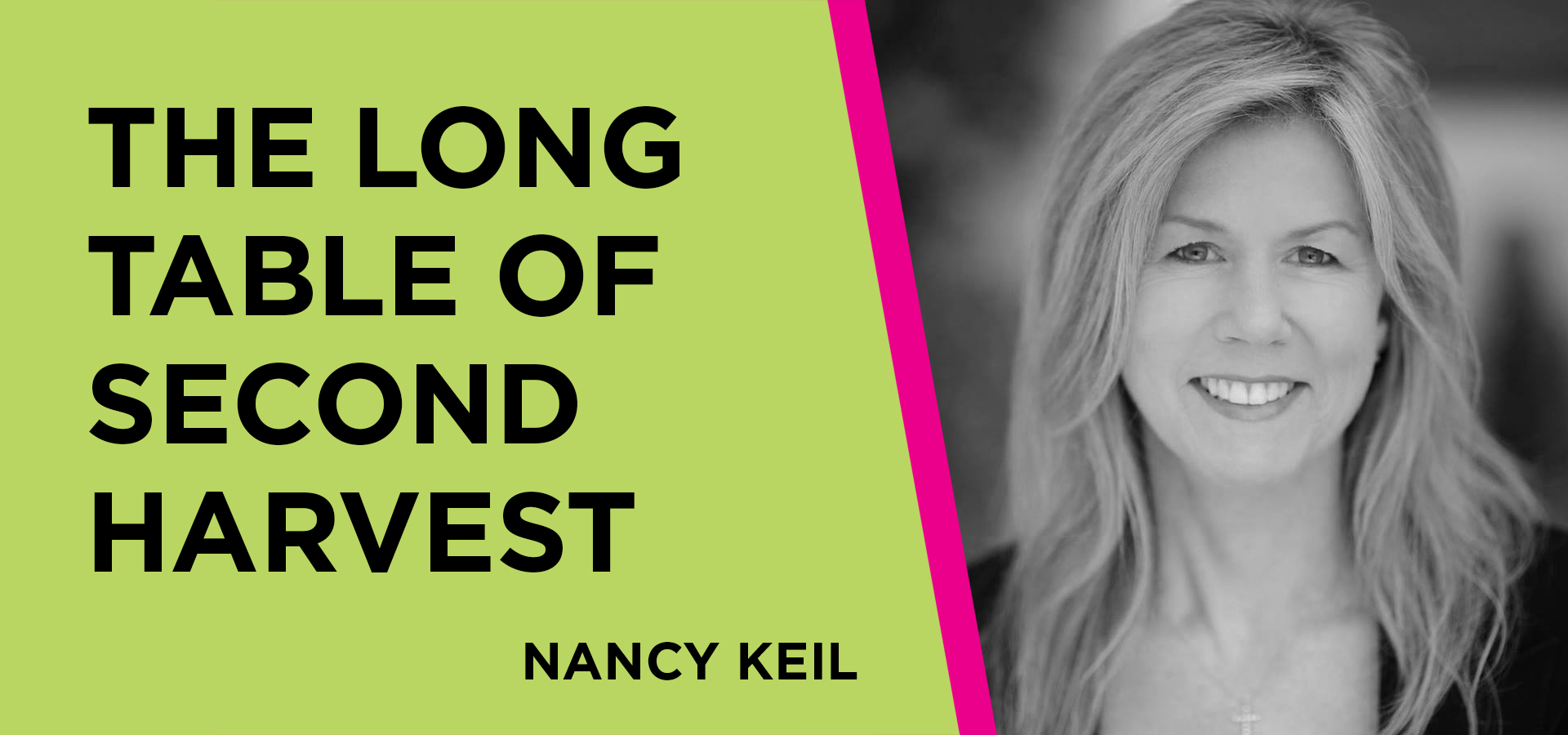Nancy Keil
The Long Table of Second Harvest
Meet Nancy Keil, CEO of Second Harvest Food Bank of Middle Tennessee, avid traveler and thrill seeker. She oversees the collaboration, inclusion, innovation, integrity, and wellbeing of the food bank, while providing leadership and vision in advancing hunger issues throughout 46 counties in Middle & West Tennessee. When she’s not with her dog Jax at a park, she’s making a difference for those facing food insecurity around it.
Creating and leading projects like restaurant partnerships to serve hot meals, weekly Metro Nashville Schools food distributions, transportation for clients in need through a partnership with Lyft and much more, Nancy is driven to supporting and uplifting the Middle Tennessee community, which has faced unprecedented challenges from natural disasters along with the COVID-19 pandemic. Second Harvest works with 450 partner agencies; nonprofits like soup kitchens, after-school programs and senior care facilities receive access to food at no cost from Second Harvest.
Recently honored for her work and commitment to our community, Nancy was one of three female leaders in Nashville named as “Women of Impact” by the Women In Numbers nonpartisan organization and honored in Nfocus magazine’s “Model Behavior 2020” for her support and leadership.
How does food insecurity affect Tennesseans?
One in eight Middle Tennessean individuals and one in seven children face food insecurity. They may not be able to afford food due to a missed paycheck or live in a food desert area; sometimes, they come in and out of it. So, Second Harvest takes away the stress of food insecurity and allows those facing it to overcome it.
What programs does the Second Harvest Food Bank run?
Contactless food distributions, restaurant partnerships to serve hot meals, produce box production and distribution, weekly Metro Nashville Schools food distributions, home deliveries made possible by Amazon, providing transportation to clients in need through a partnership with Lyft, and several more programs are ran by Second Harvest, putting nutrition first by locally sourcing food from farmers and partners. These programs are helped tremendously by the generosity of organizations, partners, and individuals who care about the Middle Tennessee community.
As diversity grows in Nashville, how has Second Harvest Food Bank changed?
“It’s made us think differently about what types of foods we need to source,” Nancy says.
Second Harvest constantly changes what goes into fresh produce boxes to accommodate culturally appropriate foods. Families get to pick what they need, and that is a constant effort put into, not only by Second Harvest, but also by food banks across the United States.
How does Nancy infuse her personal life with her work life?
“People that know me know I’m a crazy adventure seeker. So I thrive on scary things that make me feel uncomfortable,” Nancy says.
She’s gone skydiving numerous times, hiked to the top of Kilimanjaro, and swam with sharks. She’s up for a challenge—physically, emotionally and intellectually. None and that can be done alone; she thrives in team collaboration to accomplish those hard problems we face today.
“How can we do even better tomorrow?” Nancy expresses.
So, working for Second Harvest has allowed her to face those challenges and create ways to be better tomorrow.
How can we help?
Second Harvest has a Nashville facility, a Smyrna facility, and a Camden facility where you can volunteer to sort food. It could be building produce boxes, sorting dry shelf stable food, filling kids’ backpacks, or even bagging apples depending on what is needed at the time.
Volunteering, donating money, or donating food. Anything that contributes to feeding those facing food insecurity, Nancy lets us know that it makes a difference.
“Our team is very much focused on securing stories from people that have been impacted and being able to share those stories because people are interested in the outcome. So I gave you money or I gave you food, or whatever it is. Did it help? Did it make an impact? The answer is yes because, when you think about what Second Harvest does, it’s millions of meals. It’s hundreds of thousands of people being impacted.”
Resources and Links




